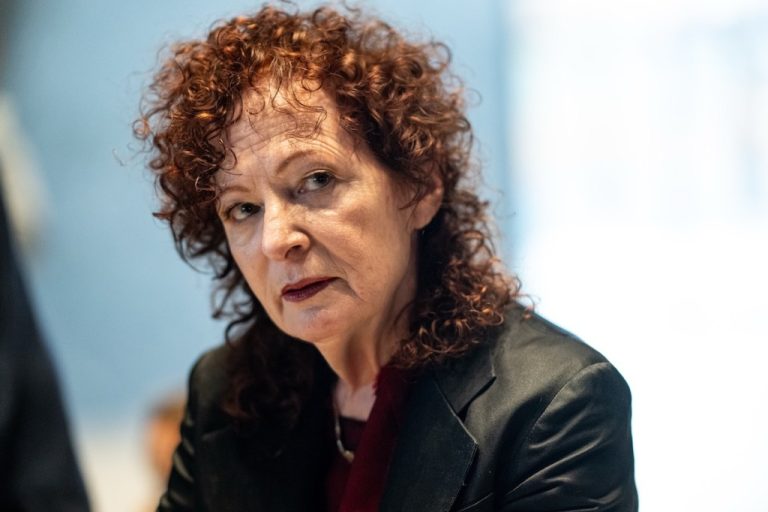After claiming censorship in a widely discussed interview, Nan Goldin later added a line about Gaza, Lebanon and the West Bank to an artwork on display at the Neues Nationalgalerie in Berlin. and information on those killed during the Hamas attack on October 7.
Goldin reportedly had a heated argument with museum director Klaus Biesenbach over her plans to add the statement to the museum. sexual dependence balladis her iconic 1985 photo slideshow that appears in her new National Gallery survey.
Last week, The magazine published an interview with journalist Hanno Hauenstein frankfurter reviewGoldin claims the agency initially refused to allow her to add the statement, a move she called censorship.
“The museum clearly didn’t want to reference my political views or the space for mourning in the exhibition,” Goldin said.
Goldin said the statement originally read: “Solidarity with the people of Gaza, the West Bank and Lebanon. Also with the Israeli civilians who were killed on October 7.”
in a new frankau In a report published Thursday, the museum told Hauenstein that this was not true. The New National Gallery said Goldin’s original statement did not mention the victims of October 7, so the museum could not add the slide.
But now, after internal discussions, this slide has finally been added, but with slightly different language. Now it reads: “Solidarity with the people of Gaza, the West Bank, Lebanon and the Israeli victims of October 7.”
Asked by Hauenstein about the new statement, Biesenbach said: “The museum stands by the fact that artists have the right to free speech as long as they abide by our Code of Conduct.”
A spokesman for the New National Gallery did not respond. art newsRequest for comment. art news Goldin could not be reached through her gallery representatives.
Even before it opened, Goldin’s exhibition came under scrutiny for her support of pro-Palestinian causes. Certain German publications noted that she wrote in a letter written by art forum called for a ceasefire in Gaza but did not initially mention the October 7 attack in Israel.
At the opening of the exhibition in Berlin, Golding gave an impassioned speech in which she harshly condemned Germany’s response to those who support Palestine. She said the word anti-Semitism had “lost its meaning” in Germany, that the rise of Islamophobia was “ignored” and called Israel’s military campaign in Gaza “genocide”. But, she said, “We should not view this as genocide. Germany, are you afraid to hear this?”
Biesenbach then gave his own speech, saying he disagreed with Golding’s sentiments. “For us, Israel’s right to exist is unquestionable,” he said, condemning the “cruel acts of terror” that took place in Israel on October 7. He then expressed sympathy for the victims in Gaza, Lebanon. During that speech, Biesenbach was briefly shouted down by pro-Palestinian demonstrators.


